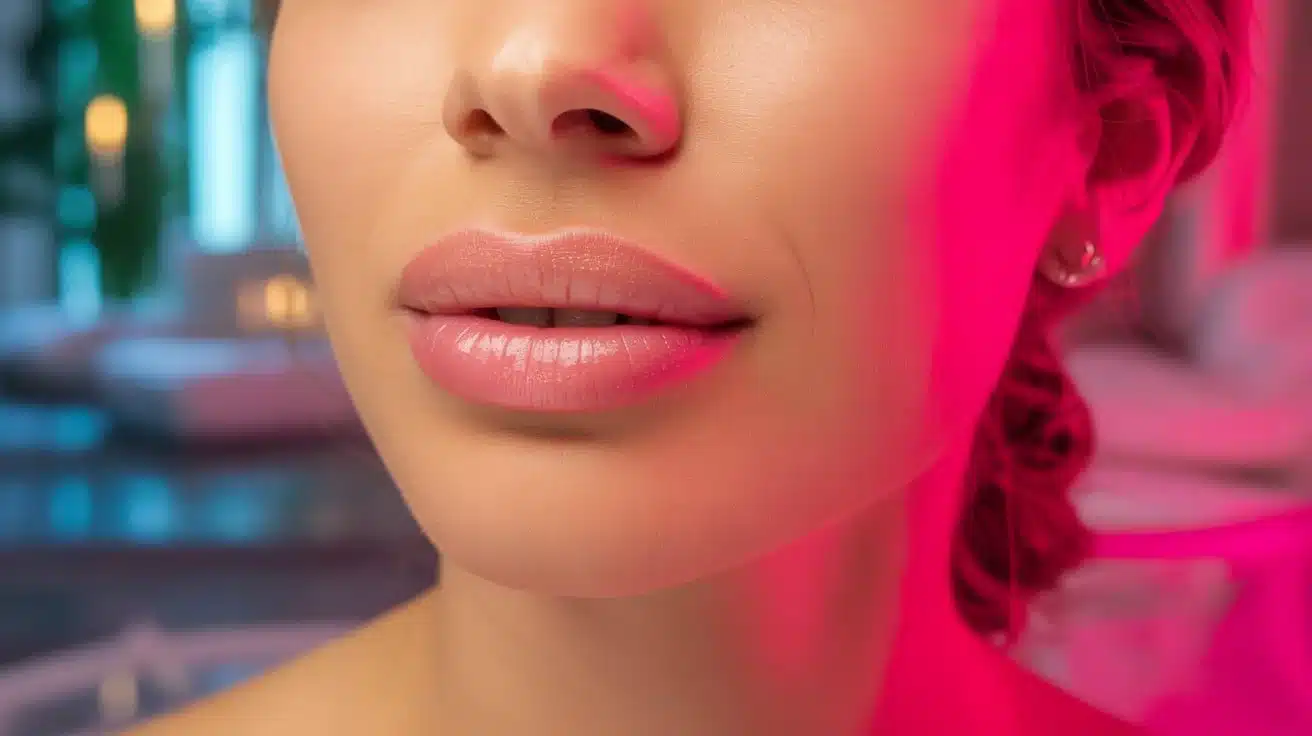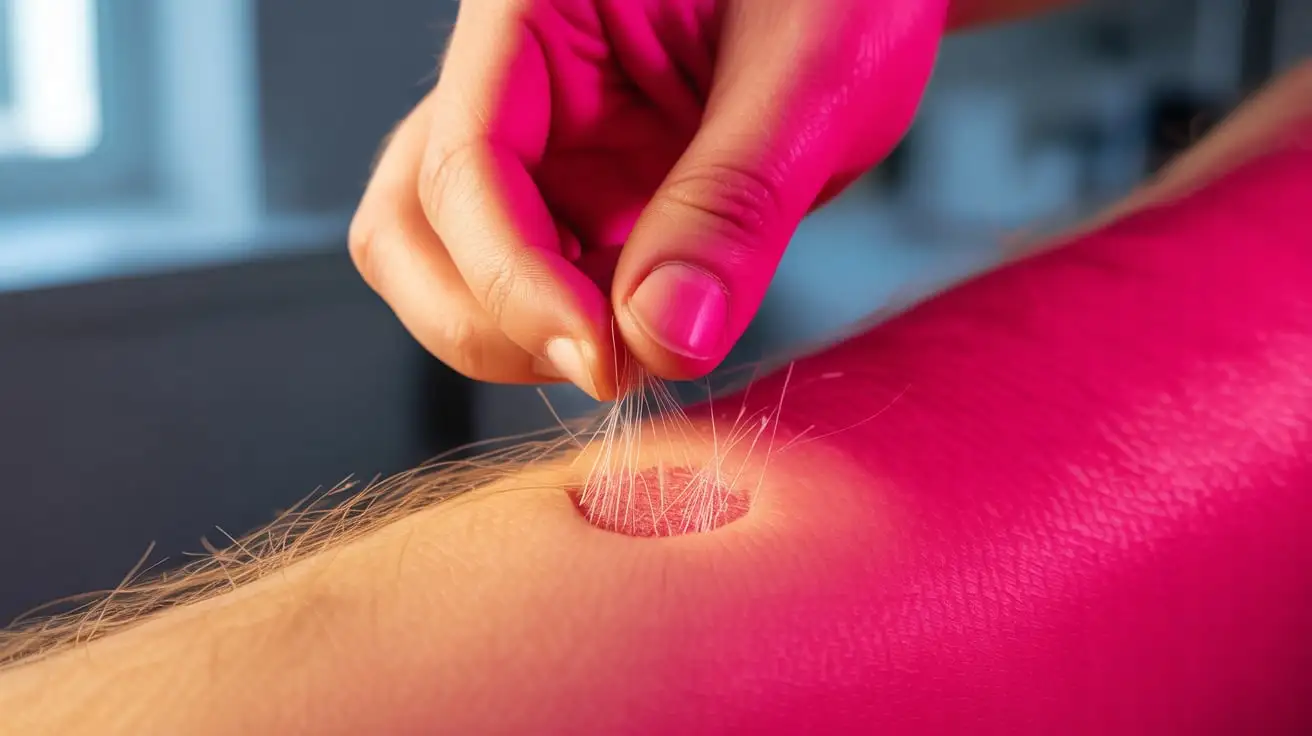In recent years, there’s been a major shift toward natural hair care solutions, with more people turning to ingredients found in nature to enhance the health and beauty of their hair. Among these trends, ocean water for hair has gained popularity as a potential natural remedy for adding volume, texture, and scalp benefits.
Table of Contents
ToggleWhether it’s the effortless beach waves or the refreshing feel of salt water, many believe that ocean water can do wonders for the hair. But is it really good for you—or could it be causing more harm than good?
In this blog, we’ll explore the key benefits and risks of using ocean water for hair, how it affects different hair types, and the best ways to protect and care for your strands before and after a swim. Whether you’re a beach lover or just curious about natural hair care, this guide will help you understand if ocean water is right for your hair routine.
What’s in Ocean Water?
Ocean water is more than just salt—it’s a natural mix of minerals and trace elements that can have unique effects on your hair and scalp. Understanding what’s in it helps explain why ocean water for hair is both praised and cautioned against in the beauty world.
Natural Minerals and Salt Content
Ocean water contains a high concentration of sea salt, along with minerals like magnesium, calcium, potassium, and iodine. These elements can help cleanse the scalp by removing excess oil, buildup, and dead skin cells. Sea salt for hair is known to add natural texture and volume, which is why it’s often used in texturizing sprays and styling products.
Antibacterial and Exfoliating Properties
Thanks to its salt and mineral content, ocean water has mild antibacterial and exfoliating effects. It may help with scalp issues like dandruff, minor irritation, or oily buildup. The coarse texture of sea salt can gently scrub the scalp, promoting better circulation and a cleaner, fresher feel.
Potential Benefits of Ocean Water for Hair
Many people love that fresh, tousled beach look—and it’s no coincidence that ocean water for hair has become a go-to natural solution for achieving that effortless style. Beyond just aesthetics, ocean water offers a range of potential hair and scalp benefits, thanks to its mineral-rich and purifying properties.
Adds Texture and Volume (The Beach Waves Effect)
One of the most noticeable benefits of ocean water for hair is the enhanced texture and body it provides. The salt in the water helps swell the hair shaft slightly, giving strands more grip, lift, and that iconic tousled “beach wave” appearance—without any styling tools.
Removes Excess Oil and Buildup
Ocean water acts as a natural cleanser. The salt content helps absorb excess sebum (natural oils) from the scalp and hair, leaving it feeling fresher and less greasy. It also helps remove product buildup, making it a great occasional detox treatment.
May Help With Dandruff and Oily Scalp Conditions
The natural exfoliating properties of sea salt can help loosen and wash away flakes from the scalp, making it potentially beneficial for those with mild dandruff or oily scalp issues. The antibacterial effects of ocean minerals may also help calm minor irritations or reduce itchiness.
Contains Beneficial Minerals Like Magnesium and Potassium
Ocean water is rich in trace minerals like magnesium, calcium, and potassium—all of which can play a role in maintaining a balanced and healthy scalp. These minerals may promote circulation, improve hair strength, and support overall scalp health.
Possible Risks and Side Effects of Ocean Water for Hair
While ocean water for hair offers some impressive natural benefits, it’s not without its downsides—especially when used frequently or without proper aftercare. The high salt content and exposure to sun, wind, and other environmental factors can lead to a few notable risks for your hair and scalp.
Can Cause Dryness or Brittleness with Frequent Exposure
The salt in ocean water has a dehydrating effect. When your hair is repeatedly exposed to saltwater, it can lose its natural moisture and oils, leading to dryness, split ends, and increased breakage. This is especially true for already dry or porous hair types. Without rehydrating treatments, ocean water for hair may end up doing more harm than good.
Fades Hair Color or Chemical Treatments
If you have color-treated, permed, or chemically straightened hair, saltwater can accelerate fading and weaken the results of those treatments. The combination of salt, UV rays, and minerals can strip away color pigments and disrupt chemical bonds, leading to dullness and reduced longevity of salon work.
Scalp Irritation in Sensitive Individuals
Although ocean water can help cleanse the scalp, it may also cause irritation for people with sensitive skin or conditions like eczema or psoriasis. The salt and mineral content may sting, dry out the scalp, or trigger inflammation in some cases. If you have a history of scalp sensitivity, proceed with caution when using ocean water for hair.
How to Protect Your Hair at the Beach
Spending time at the beach can be relaxing and fun, but if you’re not careful, the combination of sun, salt, and wind can take a toll on your hair. While ocean water for hair can add texture and volume, it can also lead to dryness and damage without the right protection. Here are some simple but effective ways to keep your hair healthy while enjoying the ocean breeze.
Use Leave-In Conditioner or Oil Before Swimming
Before diving into the ocean, apply a generous amount of leave-in conditioner or lightweight hair oil. This creates a protective barrier that helps prevent ocean water for hair from stripping away natural moisture. Coconut oil, argan oil, or silicone-based products work well to lock in hydration and reduce saltwater absorption.
Wear a Hat or Use a UV-Protective Hair Spray
Sun exposure can weaken hair strands and fade color-treated hair. Wearing a wide-brimmed hat or using a UV-protective hair spray adds an extra layer of defense against sun damage. It also helps reduce the combined drying effects of sun and saltwater.
Rinse Hair with Fresh Water Immediately After Exposure
After swimming in the ocean, always rinse your hair thoroughly with clean, fresh water. This helps remove salt, sand, and other residues that could otherwise cause dryness, stiffness, or irritation. The sooner you rinse, the better your chances of preventing salt buildup from affecting the health of your hair.
How to Protect Your Hair at the Beach
Spending time at the beach can be relaxing and fun, but if you’re not careful, the combination of sun, salt, and wind can take a toll on your hair. While ocean water for hair can add texture and volume, it can also lead to dryness and damage without the right protection. Here are some simple but effective ways to keep your hair healthy while enjoying the ocean breeze.
Use Leave-In Conditioner or Oil Before Swimming
Before diving into the ocean, apply a generous amount of leave-in conditioner or lightweight hair oil. This creates a protective barrier that helps prevent ocean water for hair from stripping away natural moisture. Coconut oil, argan oil, or silicone-based products work well to lock in hydration and reduce saltwater absorption.
Wear a Hat or Use a UV-Protective Hair Spray
Sun exposure can weaken hair strands and fade color-treated hair. Wearing a wide-brimmed hat or using a UV-protective hair spray adds an extra layer of defense against sun damage. It also helps reduce the combined drying effects of sun and saltwater.
Rinse Hair with Fresh Water Immediately After Exposure
After swimming in the ocean, always rinse your hair thoroughly with clean, fresh water. This helps remove salt, sand, and other residues that could otherwise cause dryness, stiffness, or irritation. The sooner you rinse, the better your chances of preventing salt buildup from affecting the health of your hair.
Best Practices: Should You Use Ocean Water on Your Hair?
The natural minerals and texture-boosting qualities of ocean water for hair have made it a popular choice among beach lovers and beauty enthusiasts. But is it something you should use regularly, or only on occasion? The answer depends on your hair type, condition, and how you care for your hair afterward. Here’s what to consider before making ocean water part of your hair routine.
Occasional Use vs. Regular Exposure
Ocean water for hair can be beneficial in small doses—especially for adding volume and removing buildup. Occasional exposure, paired with proper aftercare, is generally safe for most hair types. However, frequent or prolonged exposure to saltwater without protection can strip moisture and cause long-term dryness or breakage. For best results, treat ocean water as a once-in-a-while boost, not a daily treatment.
Ideal Hair Types for Ocean Water Benefits
- Oily or fine hair: May benefit the most from the cleansing and volumizing effects.
- Normal to slightly wavy hair: Can enjoy the beachy texture without much risk.
- Thick or curly hair: May experience dryness, so proper moisturizing is essential after exposure.
Ocean water works best for those whose hair isn’t overly dry or chemically treated, as it provides a natural lift and light scalp detox.
When to Avoid It
If your hair is:
- Bleached or color-treated: Saltwater can fade color and weaken chemically altered strands.
- Dry or damaged: Ocean water may worsen breakage or brittleness.
- Sensitive scalp: The salt content could trigger irritation or inflammation.
In these cases, it’s best to avoid exposing your hair to saltwater or to take extra protective steps before heading to the beach.
Expert Opinions and Hair Stylist Advice
Most stylists agree that ocean water for hair can be useful if you know your hair’s limits. Experts recommend using a leave-in conditioner or hair oil before swimming, rinsing with fresh water afterward, and applying a deep-conditioning treatment once you’re back home. If you’re unsure, a quick chat with your hairstylist can help determine whether your hair type is suited for saltwater exposure.
Natural Alternatives to Ocean Water
If you love the texture and volume that ocean water for hair provides but want to avoid the potential dryness and damage, there are gentler, controlled alternatives you can try. These options mimic the beachy effects of saltwater without the harsh side effects of real ocean exposure. Here are some of the best natural and store-bought solutions:
DIY Sea Salt Sprays
You can create your own sea salt spray at home using a few simple ingredients:
- 1 cup of warm water
- 1 teaspoon of sea salt
- 1 teaspoon of coconut oil or leave-in conditioner
- A few drops of essential oil for fragrance (optional)
Shake well and mist lightly over damp hair to add beachy waves and volume—without the unpredictable effects of ocean water for hair.
Mineral-Infused Hair Mists
These are lighter than salt sprays and often contain minerals like magnesium and zinc, which nourish the scalp and promote shine. Mineral mists offer some of the same scalp-refreshing benefits as ocean water, but in a controlled formula that won’t overly dry your hair.
Store-Bought Products That Mimic Ocean Water Effects
Many hair care brands now offer texturizing sprays or wave-enhancing products designed to give you that windswept, beachy look. Look for products labeled:
- “Sea salt spray.”
- “Ocean texture mist.”
- “Beach waves formula.”
These are often enriched with conditioning agents to balance out the drying effect of salt—making them a safer and more reliable alternative to real ocean water for hair.
FAQs 1. Does ocean water help hair grow?
Not directly, but it may support a cleaner, healthier scalp.
2. Is salt water bad for dyed hair?
Yes, it can fade and dry out color-treated hair.
3. Can I wash my hair with ocean water every day?
No, daily use can cause dryness and damage. Use occasionally with aftercare.
Conclusion
Ocean water for hair can be both a natural beauty enhancer and a potential source of damage—depending on how and how often it’s used. On the plus side, it adds texture, volume, and can help cleanse the scalp. However, frequent exposure may lead to dryness, color fading, and irritation, especially if your hair is already damaged or chemically treated.
To enjoy the benefits without the downsides, moderation and proper aftercare are key. Always protect your hair before swimming and follow up with moisturizing treatments to maintain hair health.


